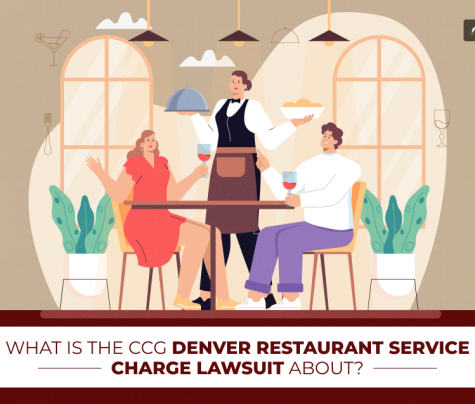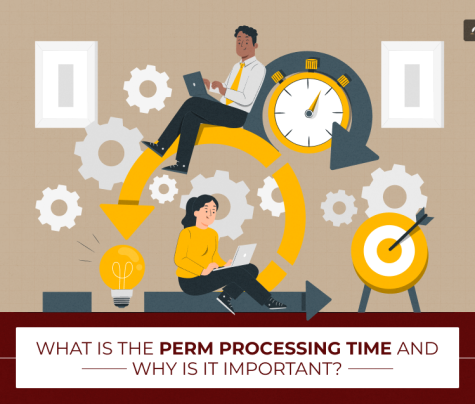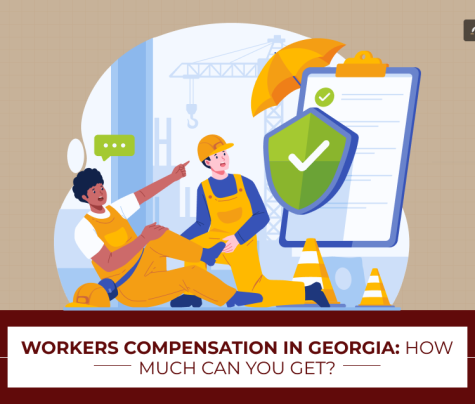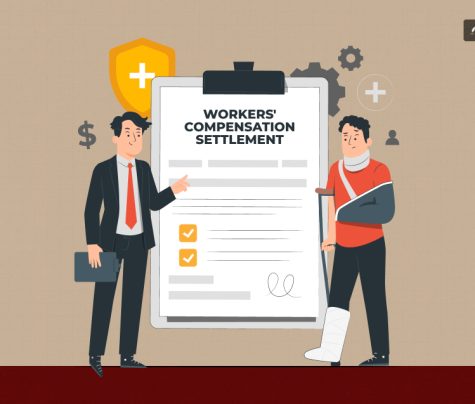
We have all heard the phrase, “If you can’t say anything nice, don’t say anything at all.” This phrase was frequently used by our parents and teachers when we were young. But are you aware of the non-disparagement clause? It is a legal term that usually pops up within the employment contract that is provided to you by your employer. In this article, we will be talking about the non-disparagement clause that enables the notion of “speak no ill” within the workplace.
What is a Non-Disparagement Clause?

A non-disparagement clause simply states that you will not be able to say anything negative about the organization and its services, products, or leaders. Moreover, this clause classifies that you will not be able to say anything negative in any form of communication.
Similarly, the non-disparagement clause aims to prevent the company’s employees from telling their friends or posting on social media that their boss is a jerk. This is because when an employee posts or tells someone negatively about their company, it tends to shed negative light on the organization.
Moreover, a Managing Partner of an employment law firm states that if you say that your boss is an idiot or a jerk, it is likely that they’ll not care. However, if you are giving interviews to journalists about the same, your boss will obviously care what you say about the company out in public. This is because they will find out, and it will also shed a negative light on your employer.
Defamation Vs Disparagement: The Differences

You might get confused between the terms defamation and disparagement. Defamation generally means false statements that require some extent of ill-intent. Moreover, disparagement is a wider concept. Defamation generally states, “Don’t make up bad things about us just to hurt us.” On the other hand, disparagement states, “Don’t say bad things about us, even when it’s true.”
So, if you’re someone who is planning to vent your frustration on LinkedIn, it’s better that you don’t. If you do so, you will be said to have violated the non-disparagement clause you signed. Moreover, even if you do not intend to post anything malicious but state a true event, it will fall under disparagement.
When Will You Be Asked to Sign a Non-Disparagement Clause Agreement?

Having the presence of a non-disparagement clause on your employment settlement is not an unusual sight to look. When you are employed, the employment settlement you sign typically consists of a non-disparagement clause, at the side of a non-compete or non-solicitation settlement.
Many human resource managers have stated that when employees are made to sign something upfront while everyone’s happy, it enables the protection of the organization. Moreover, it also allows the restriction from bad-mouthing the company if the relationship between employer and employee sours in the future.
On the other hand, another situation where you might observe a non-disparagement clause is within a separation agreement. Similarly, it is signed when you’re fired, laid off, or leaving on bad terms with the employer.
Many human resource managers have stated that when an employee tends to stay within the company, it is rare that they’ll talk badly about their employer or company. Moreover, it is because they fear being fired. However, the moment they leave the organization, there’s a higher chance of bad-mouthing their company.
To tackle this situation, you will find in many organizations that the employer includes the non-disparagement clause within the severance agreement. This means you must sign the non-disparagement clause to get your severance payment or benefit.
Sample Non-Disparagement Clause

Now, you must wonder what a non-disparagement clause really looks like within an employment contract. Generally, these agreements provide a blueprint for the things you will not be allowed to do after leaving the organization. Let us look into some of the examples of non-disparagement clauses as follows:
Sample 1:
You agree that you will not disparage or encourage others to disparage the organization. For purposes of this agreement, the term disparage includes, without limitation, comments or statements made in any matter or medium in the press and/or the media about the organization that might adversely affect any manner of the conduct of the business of the company’s business plans or reputation of the organization.
Sample 2:
You agree not to disparage or denigrate the organization orally or in writing and that neither you nor anyone acting on your behalf will publish, post, or otherwise release any material in written or electronic format, make speeches, gain interviews, or make public statements that mentioned the organization, its operations, clients, employees, products, services without the prior written consent of the organization.
Moreover, the wording of the non-disparagement clause might vary from one organization to another. But the main message remains the same.
Should You Sign a Non-Disparagement Agreement?

The decision to sign a non-disparagement agreement entirely depends on you. Employment law attorneys state that every situation requires an effective evaluation before making any decision.
Before you finally sign a non-disparagement agreement, it is crucial that you consider what the offer has for you. Moreover, it is all about what you have in exchange after signing a non-disparagement clause.
For instance, if the company is telling you to sign the non-disparagement clause along with your severance agreement, it means the organization is trying to shut up with money. Regarding such situations, it is completely your decision whether you want to sign the agreement or not.
Moreover, if you are someone who is facing a layoff and requires the money to pay your rent and buy food to sustain yourself till you get a job, it is wise to sign a non-disparagement clause. By signing, you will be ensured that your severance will be paid to you on time. Similarly, you might even want to sign the non-disparagement clause if you are willing to have some extra savings and are motivated to make use of the money in other matters.
Exceptions When You Should Not Sign a Non-Disparagement Clause

However, there are certain situations where you should not sign a non-disparagement clause even though the company is paying you to. For instance, recently, many women have raised their voices in the #MeToo Movement. If you are someone who has been bullied, harassed, or has been assaulted in the workplace, there’s no amount of money that will stop you from spreading about your organization to others to warn them of future instances.
On the other hand, your employer might counter and agree not to say anything bad about you, either. So, it is crucial that you are asking your employer about this. Moreover, as you will be looking for another job, it is essential that your previous employer say terrible things about you that might ruin your reputation in the new workplace.
A red flag that you must consider before you sign into a non-disparagement clause is the presence of certain clauses that are better to be left in the past. This means the contents of the clause should only require the matters that would begin to occur after the employee has signed it.
For instance, if you’ve said something bad about your boss before signing the non-disparagement clause, you’ll not fall under scrutiny. But if you are caught bad-mouthing about your company after signing the clause, you will be held with the charge of “breach of contract.” In such a case, you’ll need an employment lawyer to rectify the matter.
What Happens If You Break a Non-Disparagement Clause?

Have you ever been asked to sign a non-disparagement settlement by way of your agency? While the enforcement of such agreements may additionally range depending on your organization and the type of disparagement. It is critical to approach them with warning and take them severely. After all, a non-disparagement agreement can be a felony record with civil consequences. It’s constantly necessary to abide by way of the terms of a contract you have signed and count on the fact that any violation can be enforced against you.
If you do breach the phrases of a non-disparagement agreement, the effects will possibly be economic. Depending on the unique language of the settlement. You may be required to return a few, or all your severance pay. Especially, if non-disparagement was a situation of receiving it. Additionally, you may face damages for any damage resulting from your poor remarks. However, it’s vital to observe that proving economic damages may be difficult for former employers. Especially if you’ve taken it to social media to criticize them.
Exceptions of Non-Disparagement Override
Despite the potential consequences, there are certain exceptions that a non-disparagement agreement can’t override. For instance, you can’t be prevented from filing a workers’ compensation claim or receiving benefits for an injury or illness. Likewise, you’re allowed to speak freely to government agencies conducting investigations, such as the EEOC or the FDA.
Navigating non-disparagement agreements can be tricky, and you may feel uneasy about signing one. However, by understanding what your company is asking of you and considering the potential outcomes. You can make an informed decision that protects your interests and allows you to move forward confidently. Remember, signing a non-disparagement agreement doesn’t have to be a negative experience. It can be an opportunity to leave your former employer on good terms. And open the door to exciting new opportunities.
How Long Does a Non-Disparagement Clause Last?

It is vital to be privy to non-disparagement clauses, which are regularly protected in employment contracts. These clauses are normally perpetual or indefinite. This method covers the period for the duration that your impressions for the employer in addition to the time following your departure. Essentially, which means you agree not to make any bad or derogatory comments about the employer. Its personnel, or any of its services or products, both during and after your employment with the organization ends.
It is essential to be aware that these clauses need to best impact the movements that arise after you have signed the agreement. They need to no longer have any retrospective impact for your preceding behavior. In different phrases, if you have already made terrible comments about the agency. Or its products or services before signing the non-disparagement clause. You must no longer be held accountable for one’s comments.
It is important to understand the consequences of non-disparagement clauses before signing an employment agreement. If you’re unsure of approximately any aspect of the clause, it’s miles beneficial to try to find felony recommendation to ensure which you absolutely apprehend your rights and responsibilities. Ultimately, signing a non-disparagement clause will have some distance-attaining outcomes. So, it is essential to cautiously keep in mind whether or now not you’re cushy with the terms before agreeing to them.
Can You Refuse to Sign a Non-Disparagement Clause?

When offered with a non-disparagement clause, it’s very vital to carefully examine via the record and have a look at its contents. If you experience discomfort with any part of the settlement, you’ve got the right to refuse to sign it. However, maintain in thoughts that this could result in the lack of a suggestion. Before declining to sign, it can be beneficial to speak with the hiring supervisor. To see if any modifications can be made to the wording. Or if they could provide an extra explanation about the clause’s contents.
If a non-disparagement clause is protected in a severance package. You will want to weigh the benefits of severance pay in opposition to your preference to percentage your revel in. Ultimately, you will need to decide which option is more valuable to you.
Conclusion
When it involves deciding whether to sign a non-disparagement clause. The choice in the long run rests with you and your own choice. However, it’s crucial which you take some time to collect all the essential information. Along with complete expertise the implications before making a choice.
Read Also:
- What Can Patent Law Firms Help You With?
- Who Is A Labour Lawyer And How To Become One?
- Who Is A Migrant Worker And What Are Their Struggles?











0 Reply
No comments yet.